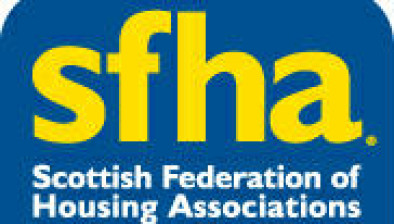UK Budget: Deputy first minister urged to honour commitment to prioritise affordable housing

Jane Wood
The Scottish Government must use the £300 million of Barnett Consequential funding allocated for Scotland in yesterday’s UK Spring Budget to restore the housing budget, Homes for Scotland (HFS) has said.
Housing saw a cut of over £200 million in December’s Scottish Budget, with organisations from across the sector warning that the cut will put the Scottish Government’s affordable housing programme at serious risk.
Alongside the cut to the Housing and Building Standards Budget, the Scottish Budget saw 26% and 43% reductions in the Affordable Housing Supply Programme and Planning Budget.
Appearing before the Finance and Public Administration Committee at Holyrood in January, deputy first minister Shona Robison assured MSPs that any increase in capital funding as a result of the UK Government’s Spring Budget would benefit housing in Scotland.
Following chancellor Jeremy Hunt’s announcement of around £300m in additional funding to Scotland through the Barnett formula yesterday, HFS chief executive Jane Wood said: “Whilst we await further clarity on how the newly announced funding will be utilised by the Scottish Government, we are calling on the deputy first minister to honour her commitment that any extra money made available to Holyrood will be prioritised for the Affordable Housing Supply Programme and in doing so, help mitigate the prolonged housing inequality experienced currently in Scotland.
“With multiple local authorities having already declared housing emergencies, and our recent independent research finding that over a quarter of Scottish households find themselves in one or more forms of housing need, housing should rightly be prioritised by the Scottish Government to ensure the wide-ranging socio-economic benefits that increased housing delivery across all tenures can be realised.”
The Fraser of Allander Institute has made clear that the Scottish Government can make the decision to transfer the additional funds to its capital budget, which would then allow it to maintain its commitment to invest the money in affordable housing.
The Scottish Federation of Housing Associations (SFHA) is writing to housing minister Paul McLennan MSP to set out this request and reiterate the cost of an over-reliance on private investment.
Reacting to the Spring Budget, SFHA chief executive Sally Thomas said: “From the moment the Scottish Budget was announced, we have been clear that the £196million cut from the Affordable Housing Supply Programme would have devastating consequences for tackling poverty and homelessness in Scotland.
“We have heard repeatedly from the government that housing would be the priority for any additional funds – so we are calling on the government to honour that commitment and use the powers they have to reinstate what was cut now.
“With the housing emergency, anything less would be a betrayal of nearly quarter-of-a-million people in desperate need of a social home.”
The Federation of Master Builders (FMB), the trade association representing thousands of construction firms in the UK, said the UK Budget was a missed opportunity to build new homes and to make existing homes more energy efficient.
Brian Berry, chief executive of the FMB, said: “The Budget could have been an opportunity to kickstart the housing market with house building rates stagnant, but the chancellor has done nothing. It was also disappointing there were no new measures to help homeowners improve the energy efficiency of their homes. This was an opportunity to reform the planning system, boost local authority planning teams’ capacities, and review the financial burdens the planning system places on smaller house builders, but again these much-needed reforms have been overlooked.
“The chancellor could have helped to close the construction skills gap ensuring the UK has the workers with the green skills needed to retrofit the UK’s homes, and provided support to help small builders deal with the administrative burden of training apprentices. All these areas could have grown the economy, instead builders got left behind – this Budget was a missed opportunity.
“The chancellor’s announcement to increase the VAT threshold for small businesses from £85,000 to £90,000 is welcome but the rate has been frozen for seven years so in real terms it makes little difference.”
For Scotland’s national advice service, Jeremy Hunt has missed his chance to lift thousands of people out of fuel poverty in the UK by failing to heed calls for a social energy tariff.
Advice Direct Scotland (ADS), which has been campaigning for the move, said it was “disappointing” that the chancellor had failed to bring forward the policy.
ADS chief executive Andrew Bartlett wrote to Mr Hunt before the Budget urging him to bring forward a UK-wide social energy tariff, describing the measure as “life-saving”.
The charity has argued that an opt-out scheme – which would automatically put struggling households on the cheapest energy deal – is the only way to effectively end fuel poverty.
The policy could be targeted at those most in need, with eligibility being determined by whether members of a household are in receipt of benefits or are on low incomes.
A poll published earlier this week showed that there is widespread public support in Scotland for the policy, with two-thirds (66%) of those questioned backing it.
Andrew Bartlett said: “It is disappointing that the chancellor has not listened to our calls for a social energy tariff in the wake of a winter which has again seen millions of people struggling to afford to heat their homes.
“The energy crisis is far from over, with households across the UK building up record levels of debt and still facing much higher costs for gas and electricity than a few years ago.
“Among those who would benefit from a social energy tariff are people with illnesses and disabilities who rely on life-saving electrical equipment to stay alive.
“We are convinced that the best way of fixing the country’s broken energy market is an opt-out system which would automatically put vulnerable people on the cheapest deals.
“Today will go down as a missed opportunity to take real action against fuel poverty, but our campaign for a social energy tariff will continue.”








